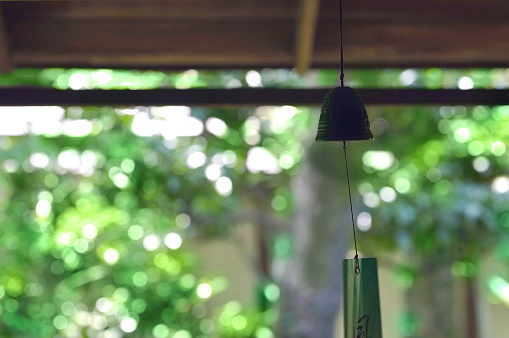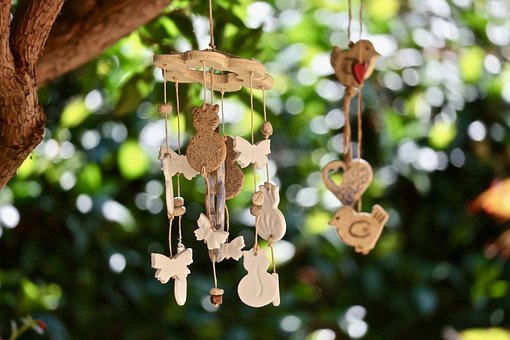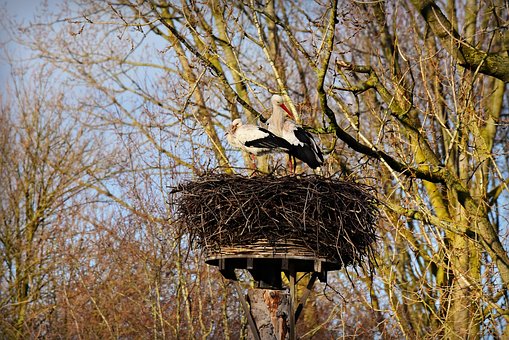
Birds are fascinating creatures. People find birds to be a nuisance or even a menace to their small livestock animals or crops, while other people go out of their way to welcome them into their yard by installing bird feeders and water baths nearby. While some people find seeing a hawk in the skies fascinating, others may regard it as a death sentence for their hens. Regardless, most of us wish to protect birds and allow them to enjoy full lives as long as it does not harm ours. Nobody wants to constantly sweep chicken droppings off their deck or walk outdoors to discover a lost bird. Let’s look at wind chimes as bird repellent:
Wind Chimes Aren’t Always the Best Option
Birds will get deterred by wind chimes. Birds will be shocked by the loud noise and will flee. However, if a bird becomes accustomed to the sound of wind chimes, it will become “habituated,” meaning that the noise will no longer alarm or repel the bird. Wind chimes will discourage birds on their first encounter, especially if they are noisy. Habituation will occur with each subsequent engagement, and birds will get more acclimated to the sound. If the birds return to the spot you’re attempting to keep them away from (which they generally do if there’s a good food supply), they’ll become accustomed to the noise at one of those times. It’s possible that this is their second or tenth effort to return to the region. Wind chimes will, more than likely, quit operating on birds after their initial encounter with the sounds owing to habituation. Wind chimes, on the other hand, can help keep birds away if you don’t have a major food source on your property, as the noise would most likely surprise them at first. So much so that the danger of engaging with the unusual sounds produced by wind chimes does not outweigh the birds’ incentive for returning to a location devoid of food or refuge.
Good Case Practices
Small and loud wind Chimes
Birds are more likely to be scared away by loud clanging noises. Some people believe that quiet wind chimes will attract birds to your home, as I said previously. When purchasing wind chimes, choose a set that produces a louder, clanging sound. You must, however, assess this alternative against the chance that the sound would repel you. While birds will adapt to any size wind chime, having a smaller set offers various benefits. First, the volume will be reduced. The chimes will also be less reflective. Both of these measures will make the birds feel secure in your yard.
Wind Chimes That Reflect
Flashing shiny things irritate birds as well. If you can’t find a loud clanging bell, look for one with reflective material. Reflective chimes are a good choice because they don’t have to generate any sound. This approach is less successful if you reside somewhere that doesn’t receive much sun.

Wind Chimes Should Be Left in the Wind
Finally, if you’re using wind chimes to keep birds away, set a large number of them in a windy region. This involves staying clear of any noticeable wind barriers, such as trees or buildings. Wind chimes are louder when there is more wind. Wind chimes that are louder are more likely to scare the birds. Also, every week or so, try changing the wind chimes. This will keep the birds alert, increasing the likelihood that the chimes will scare them away. Consider looking into further techniques to keep birds away from your property if you’re experiencing severe difficulties with them.

Conclusion
Any strange or unexpected noises will deter birds, but after they become accustomed to the noise, they will most likely return. Wind chimes in your yard may produce brief benefits, but they are unlikely to last for many years. You may have seen electronic sound deterrents in use at the grocery store or other large structures where birds prefer to perch and cluster if you live in a city with a lot of pigeons. You may have also realized that it isn’t always the most practical solution. A sound blares every few minutes, and the pigeons fly away, only to return a few seconds later. This is because it is the sole bird repellent in use, and it is never altered or exchanged. The birds are accustomed to the loud noise and are unfazed once they understand that nothing unpleasant occurs.
To keep birds on their toes while utilizing radios, wind chimes, or any other noisemaker, it’s essential to cycle through new sounds every now and again. Any pest or predator animal falls under this category.
Author Bio: Naeem Choudhry
Pest Control Expert
Naeem Choudhry is a seasoned pest control specialist with over 20 years of hands-on experience. Based in Toronto, he stays up to date with the latest industry best practices and is an active member of the National Pest Management Association of Canada.
Known for his practical tips and outstanding customer service, Naeem frequently hosts community workshops where he educates the public on pest identification, behaviour, and effective control methods. When he’s not out in the field, he shares his expertise through articles, educational events, and community outreach initiatives.
For more insights, follow him on x.com.



